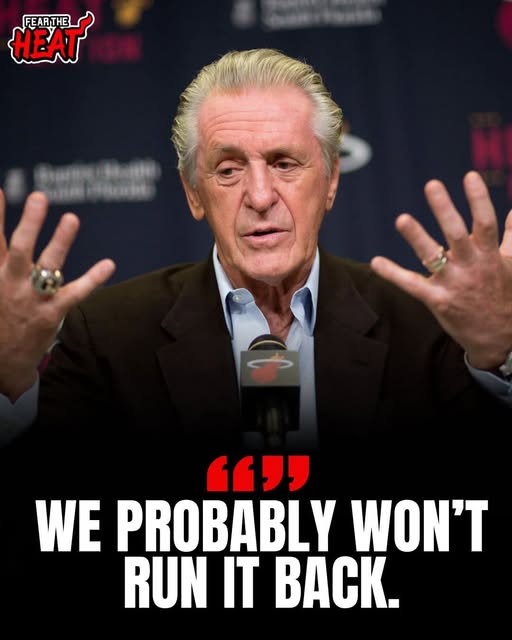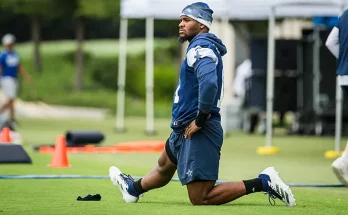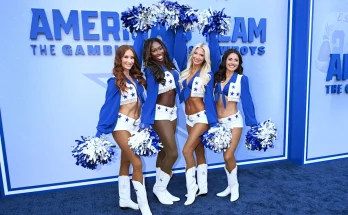The Miami Heat’s offseason has been a mix of calculated moves, surprising departures, and intriguing additions as they look to retool for another competitive season. While they haven’t made the kind of blockbuster trade that reshapes the entire Eastern Conference landscape, their quieter, more strategic approach reflects Pat Riley’s long-standing philosophy of building a sustainable winner. From drafting a promising international guard to making under-the-radar signings, the Heat are banking on development, continuity, and smart acquisitions to keep them in contention.
One of the most interesting moves of Miami’s offseason was selecting Kasparas Jakucionis in the draft. The 18-year-old Lithuanian guard is a project, but his potential is undeniable. Standing at 6’6” with a strong handle and advanced playmaking instincts for his age, Jakucionis fits the mold of the kind of versatile, high-IQ players the Heat love to develop. His ability to create for others and score at all three levels makes him an intriguing long-term piece, even if he doesn’t contribute immediately. The Heat have a strong track record of nurturing young talent—just look at the growth of Bam Adebayo, Tyler Herro, and Jaime Jaquez Jr.—so there’s reason to believe Jakucionis could be the latest success story. He may spend time in the G League or overseas refining his game, but his ceiling is high, and Miami’s player development staff could unlock something special in him.
Bringing back Davion Mitchell on a new deal was another smart move. Mitchell, acquired at last season’s trade deadline, didn’t see much playing time in the playoffs, but his defensive tenacity and ability to pressure opposing guards make him a valuable depth piece. Known as “Off Night” for his ability to shut down scorers, Mitchell gives the Heat another bulldog defender to throw at elite perimeter players like Jayson Tatum, Jalen Brunson, or Tyrese Haliburton in the playoffs. His offensive game is still a work in progress, particularly his three-point shooting, but Miami’s system has a way of maximizing role players. If Mitchell can improve his catch-and-shoot efficiency, he could carve out a meaningful rotation spot as a defensive specialist who can handle the ball in spurts.
Losing Duncan Robinson in free agency, however, stings. Robinson was more than just a shooter for Miami—he had evolved into a legitimate offensive weapon, improving his driving and playmaking to complement his elite three-point stroke. His gravity as a spacer was invaluable for Miami’s offense, and his chemistry with Bam Adebayo in dribble-handoff actions was a staple of their half-court sets. While Robinson’s departure opens up opportunities for others, his absence will be felt, especially in close games where his shooting could swing momentum in an instant. The Heat’s offense thrives on movement and spacing, and Robinson was one of the best in the league at both. Replacing his production won’t be easy, but Miami has shown a knack for finding and developing shooters, so don’t be surprised if someone else steps up.
To help fill that void, the Heat added Simone Fontecchio through a sign-and-trade. The Italian forward had a solid season split between Utah and Detroit, showcasing his ability as a three-and-D wing. At 6’7”, Fontecchio brings size, shooting, and defensive versatility—qualities Miami always covets. He’s not the same level of movement shooter as Robinson, but he’s a reliable spot-up threat who can attack closeouts and hold his own on the defensive end. Fontecchio’s game should translate well to Miami’s system, where he’ll be asked to space the floor, make quick decisions, and compete defensively. If he can adjust to the Heat’s culture and demands, he could become a valuable rotation piece, especially in lineups that need more size on the wing.
Another underrated addition was signing Vlad Goldin to a two-way contract. The 7’1” center, who played at Florida Atlantic under Dusty May (now at Michigan), is a traditional big with great hands, soft touch around the rim, and solid rim protection instincts. While he may not be a modern stretch-five, Goldin’s size and interior presence could be useful in certain matchups, particularly against bigger teams that have given Miami trouble in the past. The Heat have often relied on smaller, more mobile lineups with Adebayo at center, but having a true seven-footer as an option—even if only situationally—adds a different dimension to their roster. Goldin will likely spend most of his time in the G League, but if he develops well, he could earn spot minutes as a situational contributor.
Looking at the bigger picture, the Heat’s offseason reflects a team that values continuity while making subtle upgrades. They didn’t swing for a superstar, but they didn’t need to—this is a roster that was one game away from the NBA Finals just a year ago, and they’re banking on internal growth from their young core. Jaime Jaquez Jr. showed flashes of being a future star as a rookie, and if he takes another leap, Miami’s wing rotation becomes even more dangerous. Nikola Jović, who emerged as a reliable rotation piece last season, could also see an expanded role, particularly if his playmaking and shooting continue to improve. Then there’s Tyler Herro, who, when healthy, is one of the most dynamic scorers in the league. If he can stay on the court, Miami’s offense gets a major boost.
Of course, the elephant in the room is Jimmy Butler’s future. Butler, who is eligible for an extension, has been the heart and soul of this team for years, but there have been murmurs about whether Miami is willing to commit long-term to a 34-year-old star with a history of playoff wear-and-tear. For now, it seems both sides are content to let things play out, but Butler’s situation will loom over the season until it’s resolved. As long as he’s on the roster, the Heat will be a tough out in the playoffs—his two-way dominance and playoff pedigree give them a chance against anyone.
The Eastern Conference remains as competitive as ever, with Boston reloading, New York making big moves, and Philadelphia looking to bounce back. Miami may not have the most star-studded roster on paper, but they have something just as valuable: a proven system, a culture of accountability, and a knack for outperforming expectations. Erik Spoelstra’s ability to maximize his personnel is unmatched, and if this group stays healthy, they’ll be right back in the mix.
In the end, the Heat’s offseason wasn’t about splashy headlines—it was about making smart, calculated moves to keep the team competitive while leaving room for growth. Jakucionis is a developmental gamble with high upside, Mitchell and Fontecchio add depth and versatility, and Goldin provides a different look at center. Losing Robinson hurts, but Miami has weathered departures before, often emerging stronger. If their young players take steps forward and Butler remains elite, this team has all the ingredients to make another deep playoff run. The Heat may not always make the loudest noise in the offseason, but they have a way of letting their play do the talking when it matters most.



